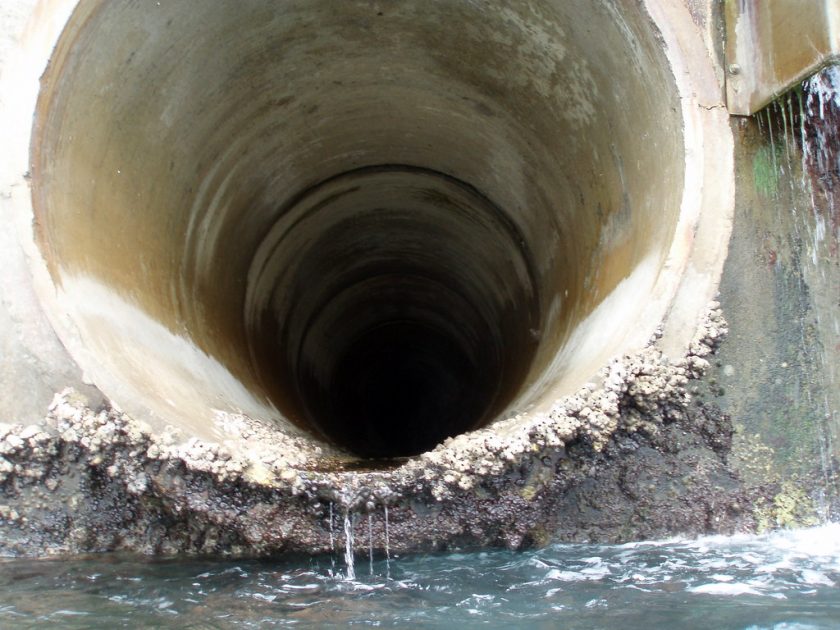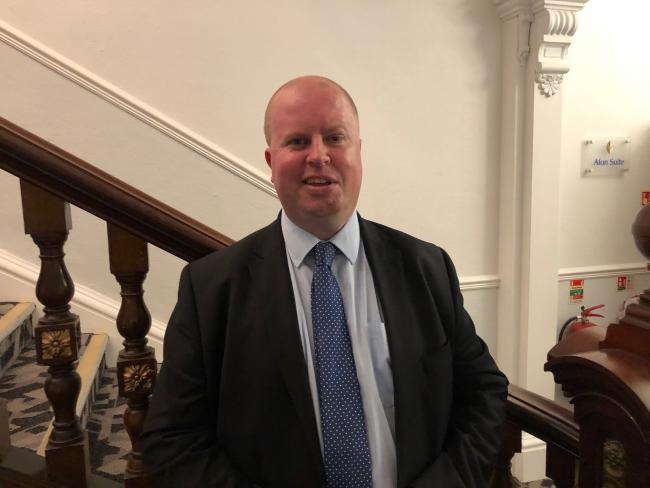North Wales Conservative MPs defend controversial sewage vote after backlash

Conservative MPs in North Wales have defended themselves over claims they have given water companies the green light to dump raw sewage into rivers.
Last week, the majority of MPs voted down a Lords amendment to the Environment Bill that would have placed legal duties on companies to reduce discharges.
It led to a backlash on social media with posts like the one below, aimed at Clwyd West MP David Jones, gaining a large amount of traction. Mr Jones later locked his account.
https://twitter.com/bmott001/status/1451665087723343874?s=20
A number of Conservative MPs in the region have since defended themselves, stating that protections are already in place and the new measures would cost billions of pounds to deliver.
Delyn MP Rob Roberts, who is currently sitting as an independent, also had his say after abstaining.
The similarity of the explainers posted by some MPs has been highlighted today and it’s been reported elsewhere that information has been circulated by Downing Street for them to share.
You can compare and contrast their responses below:
Virginia Crosbie – Ynys Mon

Most reasonable people will understand that I would not vote for sewage to be pumped into our local waters
The Environment Bill, which went through the Commons last week, will see the introduction of a new governance framework for the environment; improvements to air and water quality; protecting biodiversity and much more. It aims to give future generations a cleaner, greener, healthier and more resilient country.
I was honoured to sit on Environment Bill Committee; the marine environment in particular is important to Anglesey because it is a significant factor in tourism to the island.
The amendments we voted through last week include practical measures which will improve river health and, as a result, the quality of our seas, and place greater responsibility on water companies to monitor and report on water quality.
Unfortunately, the opposition has chosen to ignore the progressive and positive changes being adopted by the UK Government, and instead to focus on one amendment which has not been adopted. This amendment would force water companies to make major upgrades to water and sewer systems which have been in place since the Victorian era.
Whilst as a headline this amendment is laudable, the implementation is unpractical as it stands. It was voted down because it was uncosted and the cost of implementing it was estimated to be up to £650 billion (£650,000,000,000). This cost would have to be recouped through our tax or water bills (around £21,000 more for each individual tax payer in the UK).
Enacting the amendment without this investment would risk waste backing up and overflowing into homes and businesses, which no-one wants.
The Government is putting in place practical, realistic and achievable controls to clean up our waterways and I will continue to support its plans.
If you have any questions about this bill please kindly email me at [email protected]
Dr James Davies – Vale of Clwyd

Recently there has been some social media coverage relating to the discharge of untreated sewage by water companies in England, and the Government’s Environment Bill, which is currently passing through Parliament. As is often the case with such votes, the situation is complex and has either been misunderstood or wilfully misrepresented by some for political purposes.
Sewage discharge is currently taking place too often, as a result of “storm overflows”.
Much of our sewage and drainage system was built in Victorian times. Surface water from roof drainpipes and road gullies is often still channeled into the system alongside waste water and sewage from households and businesses.
This runs into treatment plants and is purified, before being released safely into watercourses. However, when there is very heavy rain, too much water can enter the system and pressure builds. If the pressure reaches a certain level, this mixture of rain water and sewage would simply flow back up the pipes and flood people’s homes, roads and gardens. As a result, storm discharges of waste water (albeit diluted) must on occasions be released into rivers and the sea.
The amendment which has been highlighted (while well-intentioned) would have required such discharges into watercourses to be reduced regardless of weather conditions, without a plan to achieve this. Taken to its extreme, this would at times provide water companies with no choice other than to allow backflow onto land and into properties.
It is estimated that to dig up much of our national sewer pipe system so as to separate foul waste from surface water will cost between £150 billion and £660 billion. To put this into perspective, £150 billion is more than the entire annual schools, policing and defence budgets put together. This issue therefore requires far more consideration than a simple nod through Parliament. The Government cannot place a duty on water companies amounting to signing a blank cheque on behalf of customers.
Rob Roberts – Delyn

There is a small but noisy minority of people both in the media and on social media who are choosing to misrepresent votes that were cast in the House of Commons last week.
Rather than let their divisive and incorrect rhetoric remain unchallenged, I thought it might be helpful to correct the record.
There was an amendment to the bill by the House of Lords which I did not feel could be accepted in the format it was presented regarding sewage being discharged into watercourses and the protection of the quality of our water.
Amendments are often complex and need greater explanation as to why the government can’t support them, when on their face they appear routine. If every suggested amendment was just accepted every time, there would be no reason for a debate – one of the main focuses that I have personally felt during the past 20 months is to make sure that we try as much as possible to avoid unforeseen or unexpected consequences of laws and to try to mitigate them as much as possible as often the most well-meaning amendments can lead to problems accidentally. There is also the issue that we are creating law and so our vote is not necessarily our opinion on an issue but also an assessment as to whether an amendment might be open to legal challenge and whether it could stand up to scrutiny in a court of law.
The amendment in question called for a complete ban on the use of storm overflows in sewage systems. In theory that sounds like a sensible suggestion with which we can all agree. In practice our sewage systems work by allowing discharges in extreme rainfall to prevent flooding.
It’s important to remember why we discharge into watercourses in the first place. Waste water from rain is channelled into the system alongside waste water and sewage from houses and businesses. This then goes to treatment plants and is purified before flowing back into the river system.
When there is heavy rain however too much water enters the system and pressure builds. If the pressure reaches a high enough level this mixture of rain water and sewage would simply flow back up the pipes and flood people’s houses.
So, the amendment would have meant that this would have been a real possibility. Having spent a large amount of time in the past 12 months dealing with flooding in Ffynnongroyw which has been ongoing without having been dealt with for a couple of decades until I co-ordinated a multi-agency response costing almost £100,000 recently, and having seen the devastation that it caused just having rainwater flooding into people’s houses, I was not about to approve an amendment to legislation that could potentially have led to not only more flooding in houses, but flooding of sewage rather than just rainwater. That’s pretty high on my list of “really wouldn’t want to have happen to people’s homes”.
To fix the issue, it seems that most of the sewage system in the country would have to be reinstalled. Initial assessments suggest a cost of more than £150 billion to £600 billion for a complete separation of sewerage systems, leading to potentially significant disruption for homes, businesses and infrastructure across the country.
That having been said, I do believe that the Government does need to look further into the matter and come up with some alternative solutions, so I abstained on voting on that particular amendment. Voting one way would have risked sewage in people’s houses but voting the other way would have been tacit approval that no further action is required, which I don’t necessarily think is the case.
I take these matters incredibly seriously, as I believe do the majority of MPs. I always want to pass high-quality, well drafted laws that actually can be enacted rather than ones that are simply headlines but fail to deliver on any of the realistic practicalities or have accidental consequences that would lead to significantly more problems than would be solved.
Hopefully that clears up the situation which has been created (once again) by headlines and rhetoric not really accurately reflecting the true nature of the issue. I hope that all sides in the political sphere can change the disingenuous way that votes and debates are presented in the media and that the media can change the poor way that they are reported without clarity or context.
Main image by eutrophication&hypoxia is licensed under CC BY 2.0
Spotted something? Got a story? Email: [email protected]
Latest News
